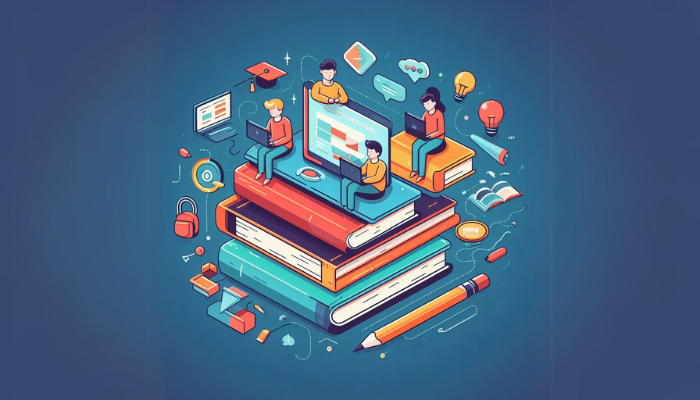Principais conclusões
- Bread does not provide any nutritional benefit to cats and may lead to them eating less of their balanced cat food.
- Uncooked bread dough can expand in a cat’s stomach, causing bloating and discomfort.
- The yeast in bread dough can produce harmful substances for cats, such as carbon dioxide and ethanol alcohol.
- Cats are obligate carnivores and do not require grains or carbohydrates in their diet.
- Feeding cats certain types of bread, such as those containing xylitol or nuts, can be harmful.
- Alternatives to bread include cooked meat, seafood, and specially formulated wet and dry cat food.
- Feeding cats excessive amounts of bread can lead to health complications and symptoms.
Índice
Introduction
Textbooks have been a staple of education for centuries, providing students and knowledge seekers with a reliable source of information and guidance for their learning. However, in recent times, textbooks have undergone a significant transformation, thanks to the advancement of digital technology. Enter digital textbooks.
Digital textbooks have revolutionized the way we learn, making education more accessible, interactive, and engaging. With the rise of digital learning resources, students can now access a wealth of information at their fingertips, anytime and anywhere. In this article, we will explore how digital textbooks have changed the face of learning and the advantages and challenges they present.
But first, What are Digital Textbooks?
Digital textbooks, also known as e-textbooks, are electronic versions of traditional textbooks that can be accessed on a computer, tablet, or smartphone. They offer a range of features that traditional textbooks on steroids cannot match, such as multimedia integration, interactive quizzes and assessments, and real-time updates. As more and more students and educators embrace digital textbooks, the question arises: how are digital textbooks changing the face of learning?
Traditional vs. Digital: A Preliminary Comparison
Before we delve into the impact of digital textbooks on learning, let us first compare some of the key differences between traditional and digital textbooks using the table below.
| Category | Traditional Textbooks | Digital Textbooks |
|---|---|---|
| Cost | Traditional textbooks are generally more expensive than digital textbooks. | Digital textbooks are usually cheaper than traditional textbooks |
| Portability | Traditional textbooks are heavy and bulky, making them difficult to carry around. | Digital textbooks are lightweight and can be accessed from anywhere with an internet connection. |
| Durability | Traditional textbooks are more durable and can last for many years | Digital textbooks are more prone to damage and can become inaccessible if the device they are stored on is lost or damaged |
| Ease of Use | Traditional textbooks are easy to use and do not require any special equipment | Digital textbooks require a device such as a computer, tablet, or smartphone to access |
| Environmental Impact | Traditional textbooks are made from paper, which requires cutting down trees and producing a lot of waste | Digital textbooks are more environmentally friendly as they do not require paper and can be accessed from anywhere with an internet connection. |
Are Digital Textbooks Better?
The comparison above shows that digital textbooks have solid advantages over traditional textbooks, but they also have some challenges and concerns. Therefore, it is not easy to answer the question of whether digital textbooks are better than traditional textbooks outright. The answer may depend on various factors, such as the subject, the level, the purpose, the context, and the preference of the learners and educators. Moreover, the impact of digital textbooks on learning is not only determined by the format, but also by the quality, the design, the content, and the pedagogy of the textbooks. Therefore, rather than asking which format is better, a more productive question may be: how can we use digital textbooks effectively and appropriately to enhance learning?
Advantages of Digital Textbooks
- Interactivity and Engagement
Digital textbooks are more interactive and engaging than traditional textbooks, with multimedia integration and interactive quizzes and assessments that help students learn and retain information better.
- Cost Efficiency
Digital textbooks are more cost-efficient than traditional textbooks, reducing production costs and making education more affordable for students. They also eliminate the need for paper, reducing paper consumption and waste.
- Portability and Convenience
Digital textbooks are lightweight and portable, allowing students to access educational materials from anywhere. They also offer a range of features that traditional textbooks cannot match, such as real-time updates and multimedia integration.
- Up-to-date Content
Digital textbooks are more up-to-date than traditional textbooks, with real-time updates that ensure students have access to the latest information.
- The Flexibility of Digital Editing
Digital textbooks offer the flexibility of digital editing, allowing students and teachers to edit and customize educational materials to suit their needs.
Challenges and Concerns
Digital textbooks also present several challenges and concerns. They can be a distraction and lead to off-task behavior, and they can also contribute to the digital divide, where not everyone has equal access to technology. Digital textbooks also raise concerns about data privacy and security, as well as environmental impact.
Environmental Impact
Digital textbooks have a reduced carbon footprint compared to traditional textbooks, with less paper consumption and waste. However, they also raise concerns about e-waste and device lifespan, as well as responsible recycling and disposal.
Pedagogical Implications
Digital textbooks have significant pedagogical implications, requiring teachers to adapt their teaching methods to suit the new format. They also require ensuring content is user-friendly for diverse learners and addressing accessibility issues.
How to Access Digital Textbooks?
There are several digital textbook providers available, each with its own unique features and offerings. Here are some popular digital textbook providers:
Here are some popular digital textbook providers:
- Zinio: Offers hundreds of thousands of digital content titles, including magazines, children’s books, and fiction novels. The website provides digital textbooks in over a dozen categories and allows you to look inside textbooks before purchase
- CengageBrain.com: Offers a wide range of digital textbooks, including eTextbooks, eChapters, and study tools.
- Amazon: Provides a vast selection of digital textbooks that can be accessed on Kindle devices or through the Kindle app on other devices.
- eCampus.com: Offers both printed and digital textbooks. It is a popular source of low-cost printed textbooks and recently expanded to begin offering digital textbooks.
- McGraw-Hill eBookstore: Offers a wide range of digital textbooks, including eTextbooks, eChapters, and study tools. You can also rent digital textbooks for a specified period.
- Textbook Revolution: Provides free digital textbooks and other educational materials.
- Chegg: Offers a wide range of digital textbooks, including eTextbooks, eChapters, and study tools. Like McGraw-Hill, you can also rent digital textbooks for a specified period.
- VitalSource Bookshelf: Offers a wide range of digital textbooks, including eTextbooks, eChapters, and study tools. You can also rent digital textbooks for a specified period. You can access your digital textbooks on any device by creating an account on VitalSource.
Conclusão
The benefits of digital textbooks are clear, and it is no surprise that they have become increasingly popular in recent years. From personalized learning to extensive learning opportunities, digital textbooks have changed the face of learning by making it more engaging, interactive, and accessible. As technology continues to evolve, it is exciting to think about how digital textbooks will continue to shape the future of education.
Source:
- Pros And Cons Of Digital Textbooks | Ablison. https://www.ablison.com/pros-and-cons-of-digital-textbooks/.
- Pros And Cons Of Digital Texts – Gutenberg Technology. https://blog.gutenberg-technology.com/en/pros-and-cons-of-digital-texts.
- Potential Advantages and Disadvantages of Digital Textbooks. https://onlinelibrary.wiley.com/doi/epdf/./j.-..tb.x.
- The Advent of the Digital Textbook: Boon or Bust? – Public School Review. https://www.publicschoolreview.com/blog/the-advent-of-the-digital-textbook-boon-or-bust.
- Pros and cons of digital textbooks – HT School. https://htschool.hindustantimes.com/editorsdesk/news-trends/what-are-the-pros-and-cons-of-digital-textbooks.
- E-textbook technology: Are instructors using it and what is the impact …. https://www.emerald.com/insight/content/doi/./JRIT—/full/html.
- The effect of textbooks on learning outcome viewed from different …. https://www.atlantis-press.com/proceedings/icei-/.
- . https://bing.com/search?q=digital+textbooks+impact+on+learning.
- How to Use Digital Textbooks or ebooks in Classroom Everyday – Kitaboo. https://kitaboo.com/digital-textbooks-in-the-classroom/.
- Does replacing textbooks with tablets impact student learning?. https://www.studyinternational.com/news/does-replacing-textbooks-with-tablets-impact-student-learning/.
- Interactive digital textbooks and engagement: A learning strategies …. https://scholarspace.manoa.hawaii.edu/server/api/core/bitstreams/d-ae-a-b-daab/content.
- Print or Digital: It All Has Environmental Impact | eomega.org. https://www.eomega.org/article/print-or-digital-it-all-has-environmental-impact.
- Environmental Impact of Printed and Electronic Teaching Aids. https://www.twosides.info/wp-content/uploads///Environmental_impact_of_printed_and_electronic_teaching_aids.pdf.
- Environmental Benefits of eTextbooks | Greener Ideal. https://greenerideal.com/news/-environmental-benefits-etextbooks/.
- Going Digital: The Advantages of Using Digital Textbooks over …. https://www.honorsociety.org/articles/going-digital-advantages-using-digital-textbooks-over-traditional-paper-textbooks.
- What Are the Benefits of Digital Textbooks? – The Tech Edvocate. https://www.thetechedvocate.org/benefits-digital-textbooks/.
- Advantages of Digital Textbooks – PapersOwl.com. https://papersowl.com/examples/advantages-of-digital-textbooks/.
- Seven advantages of using digital textbooks in schools – Hapara. https://hapara.com/blog/-advantages-of-using-digital-textbooks-in-schools/.
- https://www.bookdeal.com/blog/advantages-and-disadvantages-of-etextbooks/.
- https://www.wired.com/story/digital-textbooks-radical-transformation/.
- https://www.anthropocenemagazine.org///the-environmental-footprint-of-paper-vs-electronic-books/.
- https://lab.cccb.org/en/the-environmental-impact-of-digital-publishing/.
- https://theecoguide.org/books-vs-ebooks-protect-environment-simple-decision.




